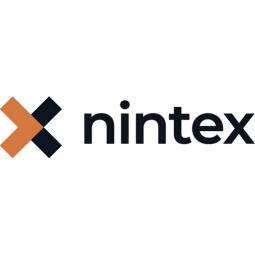下载PDF
Swiss Hospital Streamlines Daycare Services with Nintex Process Automation
适用行业
- 医疗保健和医院
- 生命科学
适用功能
- 产品研发
用例
- 需求计划与预测
- 时间敏感网络
服务
- 培训
挑战
当新冠肺炎 (COVID-19) 大流行来袭时,瑞士一家大型医疗保健机构瑞士医院 (Swiss Hospital) 面临着为其员工子女提供前所未有的日托服务的需求。随着公共和私营部门日托中心关闭,医院不得不将现场日托中心从 1 个扩大到 5 个,以满足不断增长的需求。然而,由于复杂性和数量的增加,现有的日托服务管理系统(涉及电话、电子邮件和电子表格)不再实用。该医院需要一个更高效的数字解决方案来处理其日托服务的注册和管理。
关于客户
瑞士医院是瑞士一家大型医疗保健机构。当 COVID-19 大流行爆发时,医院对其员工子女的日托服务需求突然增加。随着公共和私营部门日托中心关闭,医院不得不将现场日托中心从 1 个扩大到 5 个,以满足不断增长的需求。医院的员工(其中大多数是医护人员)必须继续在现场工作,因此日托服务至关重要。该医院需要一种新的、高效的方式来管理其日托服务的注册和管理。
解决方案
瑞士医院与 Nintex 解决方案提供商 Bechtle Suisse SA 合作,创建了一系列 Nintex 表格和 Nintex 工作流程来管理以前的手动流程。该解决方案涉及流程每个步骤的三个基于 Nintex 的表单:请求创建、请求验证和请求确认后续。动态 Nintex 表格指导员工完成儿童保育申请流程,收集员工希望为孩子登记的日期和时间的信息。然后,Nintex Workflow 将请求通知托儿服务经理,允许他们根据可用性和其他参数接受或拒绝该请求。如果获得批准,Nintex Workflow 会自动更新 SharePoint 日历,将孩子纳入日托计划中,并向员工发送回复。然后,第二份表格被发送给员工,以提供有关孩子的需求以及授权接孩子的人的姓名的更多信息。
运营影响
数量效益
相关案例.

Case Study
Hospital Inventory Management
The hospital supply chain team is responsible for ensuring that the right medical supplies are readily available to clinicians when and where needed, and to do so in the most efficient manner possible. However, many of the systems and processes in use at the cancer center for supply chain management were not best suited to support these goals. Barcoding technology, a commonly used method for inventory management of medical supplies, is labor intensive, time consuming, does not provide real-time visibility into inventory levels and can be prone to error. Consequently, the lack of accurate and real-time visibility into inventory levels across multiple supply rooms in multiple hospital facilities creates additional inefficiency in the system causing over-ordering, hoarding, and wasted supplies. Other sources of waste and cost were also identified as candidates for improvement. Existing systems and processes did not provide adequate security for high-cost inventory within the hospital, which was another driver of cost. A lack of visibility into expiration dates for supplies resulted in supplies being wasted due to past expiry dates. Storage of supplies was also a key consideration given the location of the cancer center’s facilities in a dense urban setting, where space is always at a premium. In order to address the challenges outlined above, the hospital sought a solution that would provide real-time inventory information with high levels of accuracy, reduce the level of manual effort required and enable data driven decision making to ensure that the right supplies were readily available to clinicians in the right location at the right time.

Case Study
Gas Pipeline Monitoring System for Hospitals
This system integrator focuses on providing centralized gas pipeline monitoring systems for hospitals. The service they provide makes it possible for hospitals to reduce both maintenance and labor costs. Since hospitals may not have an existing network suitable for this type of system, GPRS communication provides an easy and ready-to-use solution for remote, distributed monitoring systems System Requirements - GPRS communication - Seamless connection with SCADA software - Simple, front-end control capability - Expandable I/O channels - Combine AI, DI, and DO channels

Case Study
Driving Digital Transformations for Vitro Diagnostic Medical Devices
Diagnostic devices play a vital role in helping to improve healthcare delivery. In fact, an estimated 60 percent of the world’s medical decisions are made with support from in vitrodiagnostics (IVD) solutions, such as those provided by Roche Diagnostics, an industry leader. As the demand for medical diagnostic services grows rapidly in hospitals and clinics across China, so does the market for IVD solutions. In addition, the typically high cost of these diagnostic devices means that comprehensive post-sales services are needed. Wanteed to improve three portions of thr IVD:1. Remotely monitor and manage IVD devices as fixed assets.2. Optimizing device availability with predictive maintenance.3. Recommending the best IVD solution for a customer’s needs.

Case Study
HaemoCloud Global Blood Management System
1) Deliver a connected digital product system to protect and increase the differentiated value of Haemonetics blood and plasma solutions. 2) Improve patient outcomes by increasing the efficiency of blood supply flows. 3) Navigate and satisfy a complex web of global regulatory compliance requirements. 4) Reduce costly and labor-intensive maintenance procedures.

Case Study
Harnessing real-time data to give a holistic picture of patient health
Every day, vast quantities of data are collected about patients as they pass through health service organizations—from operational data such as treatment history and medications to physiological data captured by medical devices. The insights hidden within this treasure trove of data can be used to support more personalized treatments, more accurate diagnosis and more advanced preparative care. But since the information is generated faster than most organizations can consume it, unlocking the power of this big data can be a struggle. This type of predictive approach not only improves patient care—it also helps to reduce costs, because in the healthcare industry, prevention is almost always more cost-effective than treatment. However, collecting, analyzing and presenting these data-streams in a way that clinicians can easily understand can pose a significant technical challenge.






